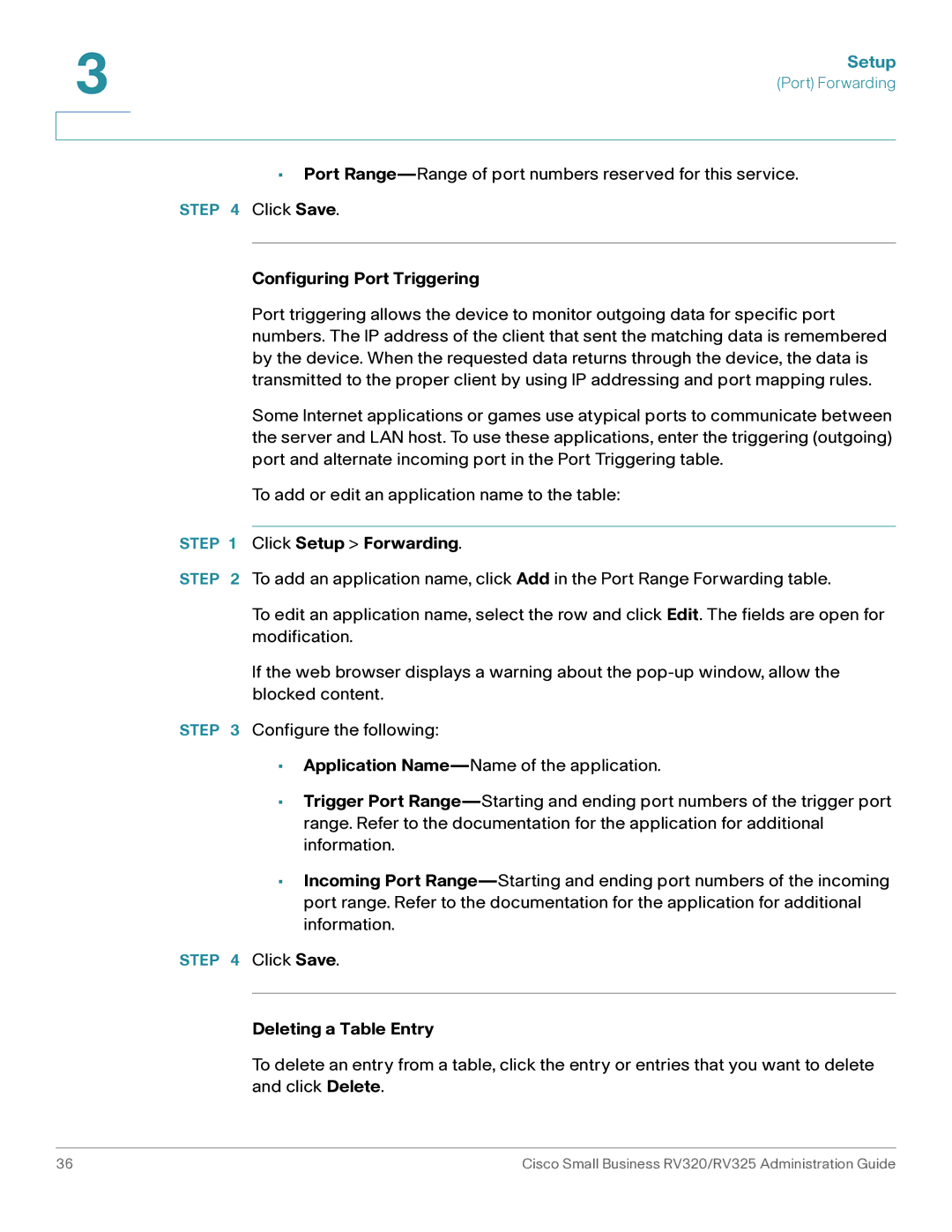
3 | Setup |
| |
| (Port) Forwarding |
|
|
|
|
•Port
STEP 4 Click Save.
Configuring Port Triggering
Port triggering allows the device to monitor outgoing data for specific port numbers. The IP address of the client that sent the matching data is remembered by the device. When the requested data returns through the device, the data is transmitted to the proper client by using IP addressing and port mapping rules.
Some Internet applications or games use atypical ports to communicate between the server and LAN host. To use these applications, enter the triggering (outgoing) port and alternate incoming port in the Port Triggering table.
To add or edit an application name to the table:
STEP 1 Click Setup > Forwarding.
STEP 2 To add an application name, click Add in the Port Range Forwarding table.
To edit an application name, select the row and click Edit. The fields are open for modification.
If the web browser displays a warning about the
STEP 3 Configure the following:
•Application
•Trigger Port
•Incoming Port
STEP 4 Click Save.
Deleting a Table Entry
To delete an entry from a table, click the entry or entries that you want to delete and click Delete.
36 | Cisco Small Business RV320/RV325 Administration Guide |
